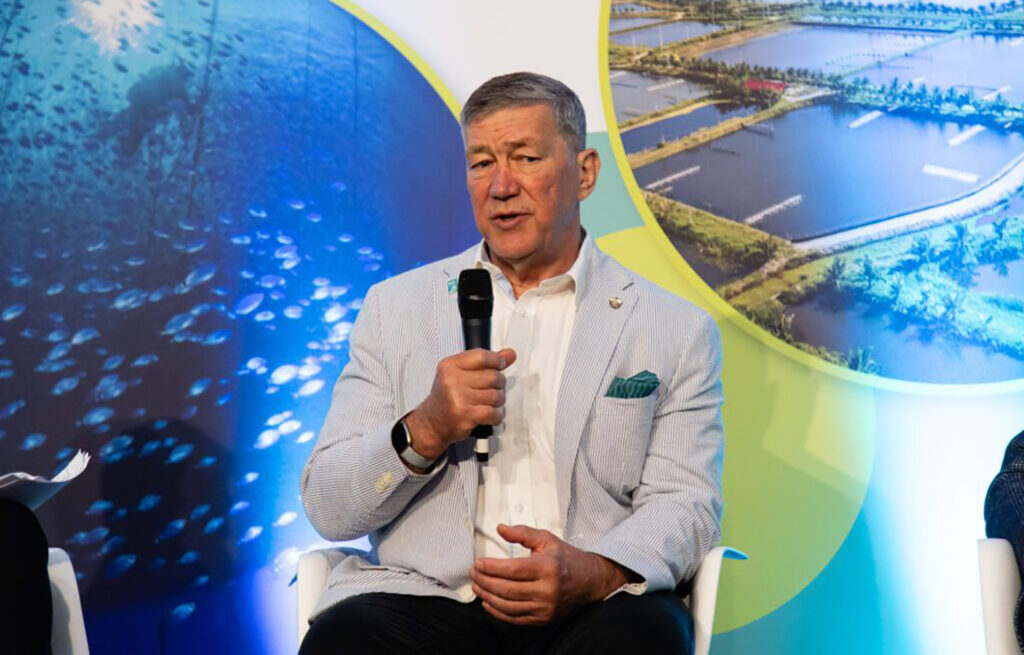Businesses, government officials, NGOs and even protesters gathered in London, UK to discuss what innovations are needed to realise the full potential of the Blue Economy.
The 2024 Blue Food Innovation Summit, held in London from 21-22 May, brought together seafood industry players from around the world to share knowledge and brainstorm ways to scale up blue food production sustainably.
During the conference, art collective Ocean Rebellion held a rotting tuna-themed protest outside the venue, urging people not to buy John West tuna and highlighting the environmental damage caused by the industry, including bycatch and the use of fish-aggregating devices that are often left unattended.
Topics covered at the event included financing, social license, feed, innovation, technology in the supply chain, introducing new species into aquaculture operations, certification, education and effective collaboration.
“Innovation will be key to adapting rapidly evolving food supply chains at a time when our oceans are under unprecedented environmental pressure,” UK Secretary of State for Climate, Environment and Energy Richard Bennion said at the forum.
One of the main topics discussed at the summit was scaling up aquaculture feed production in a sustainable way. Demand for feed is estimated to reach 100 million tonnes by 2050, but the limited supply of sustainable raw materials that can be incorporated into fish feed has led manufacturers to look to alternatives such as insects. At the same time, the availability of omega-3 oils from marine sources is becoming more difficult, so algae and crop oils are gaining attention in this field. According to presenters, this trend could fundamentally change the industry.
“Crop oils could be a game changer as an alternative to fish oil and reduce the strain on marine environments,” said Paddy Campbell, vice president of salmon at aquafeed maker Biomar.
Aquaculture Stewardship Council CEO Chris Ninnes said greater investment in technology and innovation in the seafood sector would inevitably lead to greater sustainability.
“At ASC, we believe that adopting technology in the future is crucial to increasing our social responsibility and environmental sustainability, while delivering increased value to our customers,” he said.
Louise Battle, global key account manager at DSM-Firmenich, a chemical manufacturer based in Heerlen, Netherlands, predicted that aquaculture companies would gradually move from short-term feed contracts to longer-term ones, giving the alternative ingredients industry more room to expand.
“We need new business models in terms of investing in new raw materials early on,” she said.
More broadly, financing from the private sector will be crucial.



